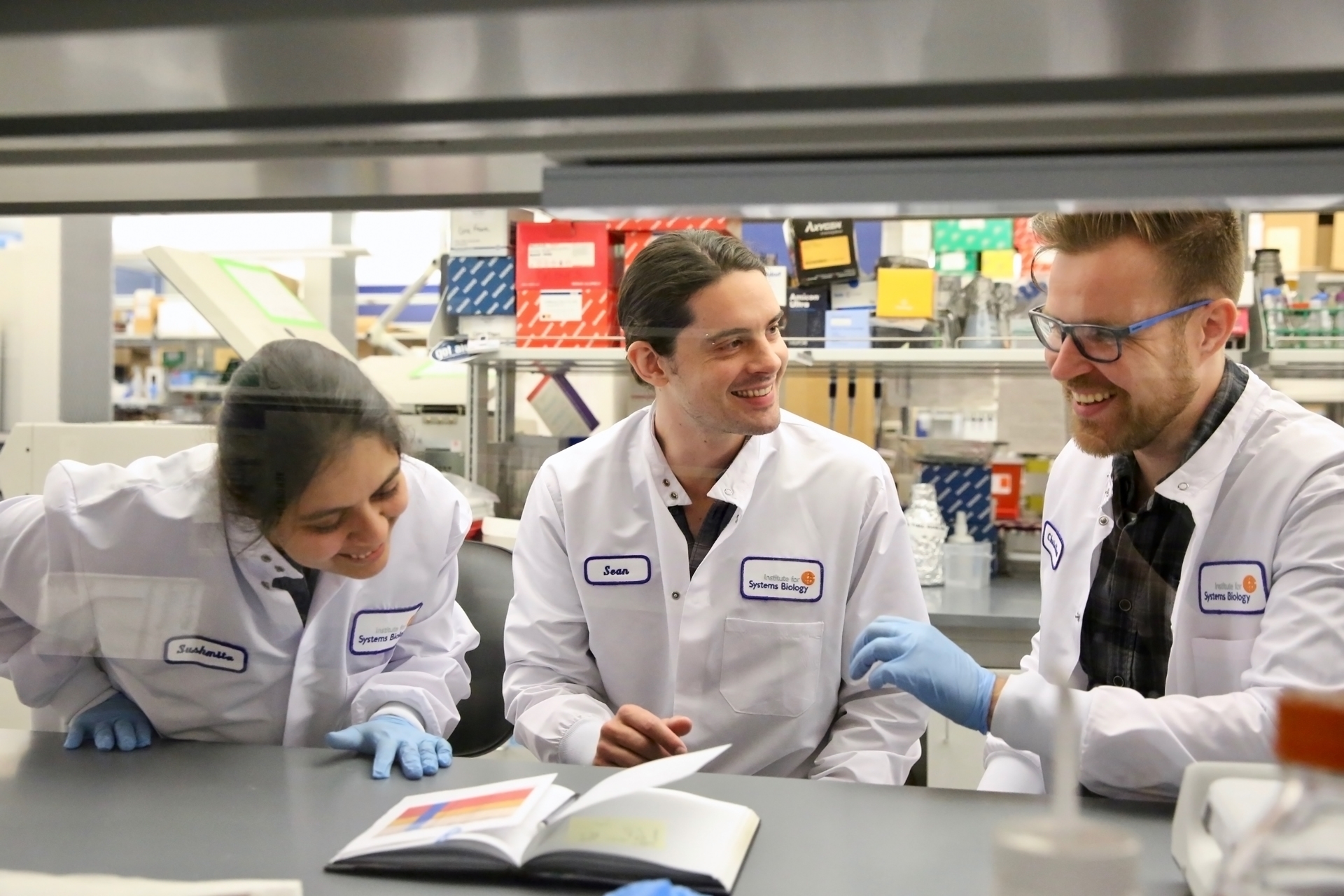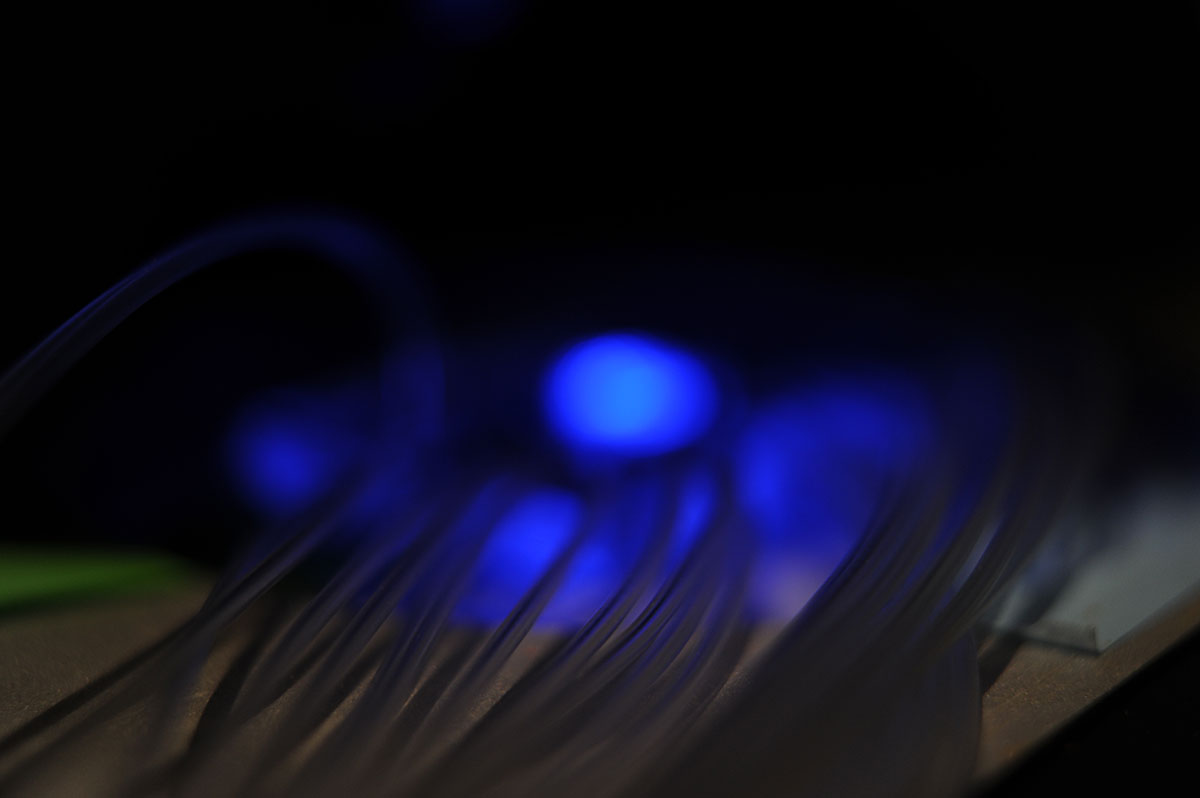Can You Lose Weight? Ask Your Microbiome
 hood.isbscience.org/2021/09/14/can-you-lose-weight-ask-your-microbiome/
hood.isbscience.org/2021/09/14/can-you-lose-weight-ask-your-microbiome/
ISB researchers have shown that the strongest associations with weight loss success or failure, independent of BMI, are found in the genetic capacity of the gut microbiome. (Image created by Allison Kudla, PhD / ISB and vrx123 and Atlas / Adobe Stock)
The strongest associations with weight loss success or failure – independent of BMI – are found in the genetic capacity of the gut microbiome. These new findings open the door to diagnostic tests that can identify people likely to lose weight with healthy lifestyle changes and those who might need more drastic interventions.
ISB researchers looked at 105 people who participated in a consumer wellness program. About half of the cohort showed consistent weight loss and improved metabolic health markers. The other half did not respond to the intervention and maintained a stable weight. The microbiomes of those who lost weight had higher bacterial growth rates and were enriched in genes that divert dietary nutrients toward bacterial cell growth. Conversely, microbiomes in those resistant to weight loss had lower growth rates, combined with a higher capacity for breaking down non-absorbable fibers and starches into absorbable sugars. Weight-loss resistant microbiomes were also primed to deal with a more inflamed gut environment.
“Our results underscore the fact that our gut microbiome is an important filter between the food we consume and our bloodstream. Weight loss may be especially hard when our gut bacteria slow their own growth, while also breaking down dietary fibers into energy-rich sugars that make their way into our bloodstream before they can be fermented into organic acids by the microbiota,” said Dr. Christian Diener, the paper’s lead author.

In this 2019 photo, Gibbons Lab members from left to right: Sushmita Patwardhan, Sean Gibbons and Christian Diener. The three scientists, along with some of their ISB colleagues, published a paper Tuesday showing that the strongest associations with weight loss success or failure, independent of BMI, are found in the genetic capacity of the gut microbiome. (Allison Kudla, PhD / ISB)
Importantly, the team examined determinants of successful weight loss that were independent of BMI. People with higher baseline BMIs tend to lose more weight following an intervention – a condition known as the “regression-to-the-mean” effect.
Next step: Diagnostics
Researchers found specific bacteria (Prevotella and other Bacteroidetes genera) that appear to be more efficient at using the degradation products from complex starches and fibers to fuel growth, likely outcompeting the body for these energy-rich small molecules and reducing the caloric energy harvest from consumed food. Ensuring our gut microbes can efficiently convert sugars cleaved away from dietary fibers into short-chain-fatty-acids and/or reducing the abundance of bacterial fiber-degrading genes in our intestine may help to ensure improved weight loss responses to lifestyle interventions and better metabolic health.
“At a minimum, this work may lead to diagnostics for identifying individuals who will respond well to moderate healthy lifestyle changes, and those who may require more drastic measures to achieve weight loss,” said ISB Assistant Professor Dr. Sean Gibbons, corresponding author on the paper. “By understanding which microbes and metabolic processes help promote weight loss in the gut microbiome, we can begin to design targeted prebiotic and probiotic interventions that might push a weight-loss resistant microbiome to look more like a weight-loss permissive microbiome.”
The genesis of this research, and part of its funding, is thanks to ISB’s Innovator Award Program. Diener, Shizhen Qin, and many of their colleagues collaborated on a project they started in 2019 to integrate genetics, blood proteomics and the gut microbiome to understand transitions from high to lower weights. The program was created in 2017 to support early-career scientists working on high-risk, high-reward innovations.
You can learn more about the research being conducted by the Gibbons Lab here. Additionally, for the second consecutive year, ISB is hosting a multi-day virtual microbiome series. The intensive two-day course (October 13-14, 2021) is intended for novice microbiome researchers to get up-to-speed in a number of research techniques, and the symposium (October 15, 2021) features presentations from six prominent microbiome researchers. This resource is free, and is perfect for graduate students, postdocs, principal investigators, industry scientists, educators, clinicians, and others curious about the microbiome. Learn more and register at our event page.





